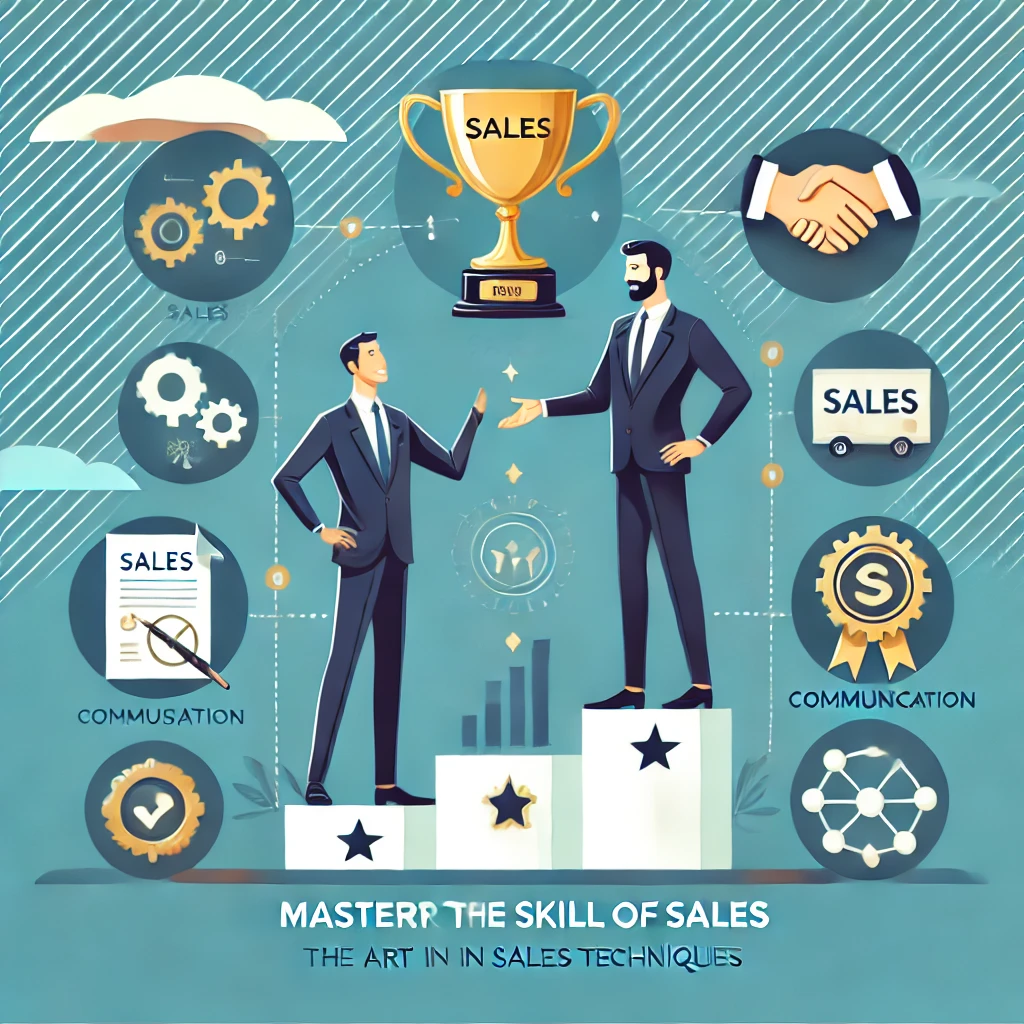
Sales are the lifeblood of any business. Whether you are a small start-up or a multinational corporation, the ability to effectively sell your product or service is crucial to your long-term success. Sales are not just about making transactions; they are about creating relationships, understanding customer needs, and building trust. In this blog, we will explore the importance of sales, key strategies for success, and how to foster a culture of high performance in sales teams.
The Importance of Sales in Business
Sales drive revenue, and revenue fuels business growth. Without sales, no business can survive. However, sales are much more than just securing a payment from a customer. They represent the connection between the business and its customers, acting as the primary channel through which value is exchanged.
At its core, sales are about solving a problem or fulfilling a need. When you understand what your customers are seeking, you can position your product or service as the solution. A good salesperson doesn’t just push products; they help people by providing solutions that improve their lives or businesses. This approach turns a one-time transaction into a long-term relationship, which is essential for repeat business and referrals.
Building a Sales Strategy
A strong sales strategy is key to achieving consistent growth. It begins with understanding your market and identifying your target customers. Who are your ideal clients? What challenges do they face, and how can your offering help them overcome these challenges? Defining your target audience and creating customer personas will allow you to tailor your approach to meet their specific needs.
Once you have a clear understanding of your audience, you can design an approach that focuses on building trust and providing value. A good strategy typically involves these key steps:
- Lead Generation: Identifying potential customers is the first step in the sales process. Lead generation techniques vary, from cold calling and email marketing to using social media and content marketing to attract prospects. The key is to identify where your customers are and how to connect with them effectively.
- Qualifying Leads: Not all leads are created equal. Qualifying leads is about narrowing down the list to focus on individuals or businesses most likely to purchase your product or service. This can be done through questions that assess the prospect’s needs, budget, and timeline. Qualifying ensures that you spend time nurturing leads that have the highest probability of converting into customers.
- Presenting Your Offer: A well-crafted presentation that addresses the prospect’s pain points and demonstrates how your offering solves their problem can make all the difference.
- Handling Objections: Every salesperson encounters objections. It’s natural for potential customers to have concerns or hesitations about making a purchase. The key to overcoming objections is to listen carefully, empathize, and respond with clear, factual answers. By addressing concerns head-on, you can build trust and guide the conversation back toward a successful outcome.
- Closing the Sale: Closing is the final step of the sales process. It involves asking for the commitment to make a purchase. Good salespeople know how to read their prospects and understand when they are ready to commit. Closing should feel natural and confident, not pushy. A clear call to action, such as offering a discount for signing today, can help seal the deal.
- Follow-Up and Retention: The sale doesn’t end once the contract is signed or the payment is processed. Following up with the customer after the sale is essential for maintaining a positive relationship. Providing excellent customer service and staying in touch can turn one-time buyers into repeat customers and advocates for your brand.
Effective Sales Techniques
Successful salespeople often use a variety of techniques to engage with prospects and close deals. Here are some tried-and-true methods:
- Consultative Selling: This approach focuses on understanding the customer’s needs and offering personalized solutions. Rather than using a scripted pitch, you ask questions to discover what challenges they are facing and tailor your presentation accordingly.
- Social Selling: In the digital age, sales are increasingly happening on social media platforms. Building relationships with prospects through LinkedIn, Twitter, and other social media channels can create opportunities for connection and trust-building before initiating the formal sales conversation.
- Storytelling: People connect with stories, not statistics. Salespeople who are able to tell a compelling story about how their product or service has helped others are often more successful in persuading potential customers.
Creating a High-Performance Sales Culture
To sustain long-term success, businesses must foster a sales culture that encourages growth, collaboration, and continuous improvement. Here are some strategies for creating a high-performance sales culture:
- Clear Goals and Expectations: Salespeople perform best when they know exactly what’s expected of them. Setting clear, achievable goals and regularly tracking progress ensures that everyone on the team stays focused and motivated.
- Ongoing Training: The world of sales is constantly evolving. Salespeople need to be equipped with the latest tools, techniques, and knowledge to stay competitive. Regular training and coaching sessions will ensure that your team remains at the top of their game.
- Recognition and Rewards: Acknowledging achievements and rewarding top performers is essential for boosting morale and encouraging high performance. Whether it’s through bonuses, commissions, or public recognition, rewarding your sales team will motivate them to continue delivering great results.
- Collaboration: Sales teams should work together, not in silos. Collaboration and communication among team members can lead to shared insights, better problem-solving, and a more unified approach to achieving sales targets.
Conclusion
Sales are essential for any business, but they are not just about closing deals—they are about forming lasting relationships, providing value, and continuously improving. With a clear strategy, effective sales techniques, and a supportive team culture, your business can excel in sales and drive growth. Remember that sales is an ongoing process, and success comes to those who adapt, learn, and build trust with their customers.



